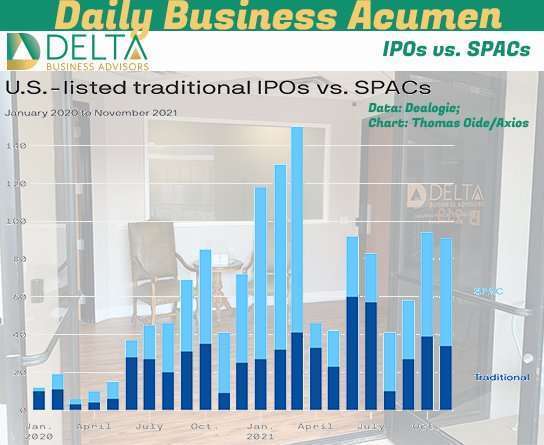Definition of a SPAC according to investopedia:
A special purpose acquisition company (SPAC) is a company that has no commercial operations and is formed strictly to raise capital through an initial public offering (IPO) for the purpose of acquiring or merging with an existing company. Also known as “blank check companies,” SPACs have been around for decades, but their popularity has soared in recent years. In 2020, 247 SPACs were created with $80 billion invested, and in just the first quarter of 2021, a record $96 billion1 was raised from 295 newly formed SPACs. By comparison, only two SPACs came to market in 2010.
https://www.investopedia.com/terms/s/spac.asp
As outlined by Axios:
SPACs are outpacing traditional IPOs in 2021, Axios’ Dan Primack writes.
562 SPACs (special purpose acquisition vehicles) went public on U.S. exchanges between January and November, compared to 373 regular companies, according to data from Dealogic.
SPACs raised $151 billion in their IPOs, while traditional issuers raised $148 billion.
By the numbers: SPACs owe most of their lead to the first quarter, when it felt like every VC, private equity and hedge fund manager was raising a SPAC for easy money optionality. Things have since begun to equalize a bit, but last week brought a dozen SPAC IPOs and no traditional ones. The bottom line: SPACs seem to be here to stay as a viable IPO alternative.
Axios Markets By Kate Marino · Dec 06, 2021
